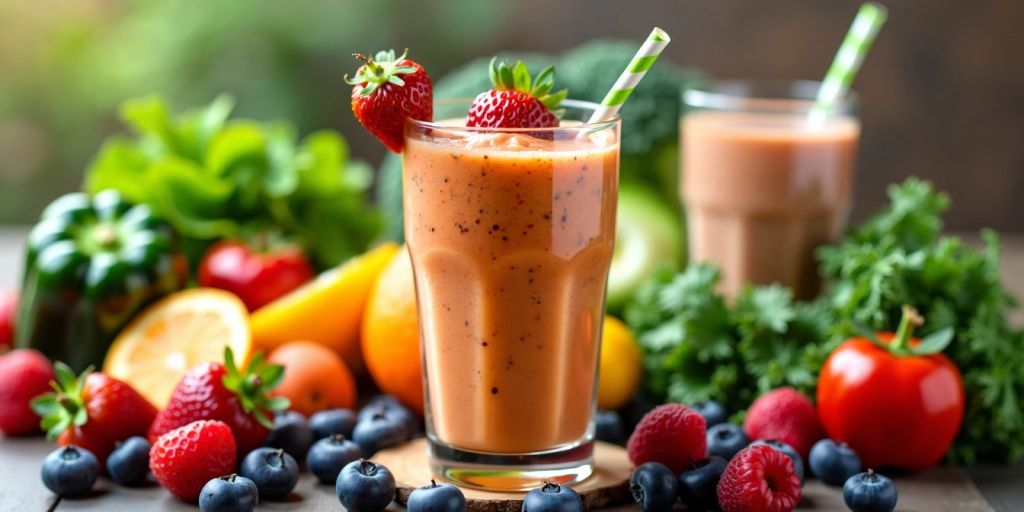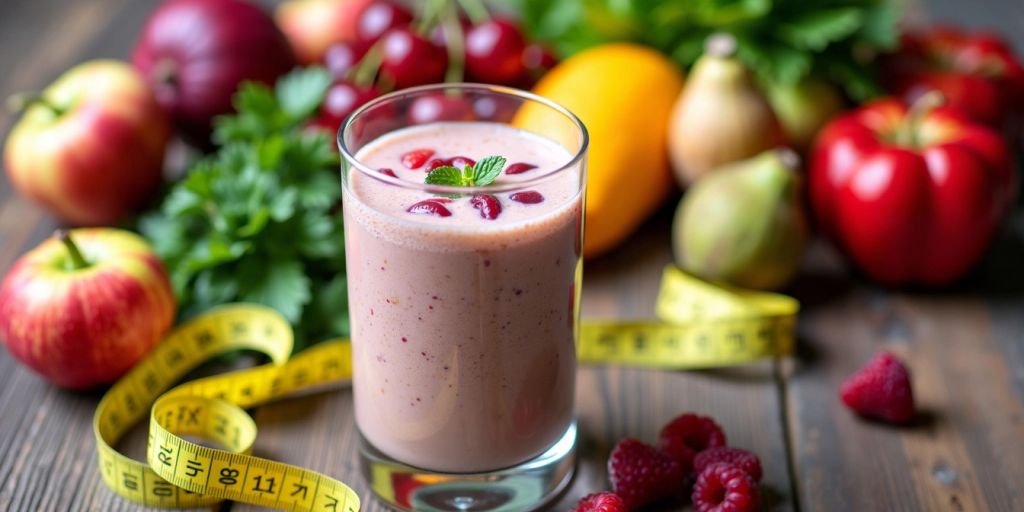As we age, maintaining good health and energy levels becomes more important. Many people turn to supplements to help support their bodies and minds. In this article, we’ll explore the top 5 supplements that can aid in healthy aging, boosting both longevity and vitality. These supplements have been chosen for their proven benefits in promoting overall wellness as we grow older.
Key Takeaways
- Omega 3 fatty acids are essential for heart and brain health, and can reduce inflammation.
- Probiotics support a healthy gut, which is crucial for overall well-being and immune function.
- Vitamin D3 is important for bone health and can improve mood and immune response.
- CoQ10 helps produce energy in cells and supports heart health.
- Resveratrol, found in red wine, has antioxidant properties that can protect cells from damage.
1. Omega 3
Omega-3 fatty acids are essential for maintaining good health, especially as we age. These healthy fats are known for their anti-inflammatory properties and their ability to support brain and heart health.
Omega-3s come in three main types:
- Alpha-linolenic acid (ALA)
- Eicosapentaenoic acid (EPA)
- Docosahexaenoic acid (DHA)
ALA is found in plant foods like flaxseeds and walnuts, while EPA and DHA are primarily found in fatty fish such as salmon and sardines. If you don’t eat fish at least twice a week, consider taking a fish oil supplement.
Omega-3s have been linked to numerous health benefits, including:
- Reduced inflammation
- Improved heart health
- Better brain function
- Lower risk of chronic diseases
Omega-3 fatty acids may slow the aging process, with the potential benefits weakening for doses over 1.1 g per day.
Incorporating omega-3s into your diet can be as simple as adding a handful of walnuts to your salad or enjoying a serving of grilled salmon. Remember, your body doesn’t produce these fats on its own, so it’s important to get them from your diet or supplements.
2. Probiotics
Probiotics are the friendly bacteria that live in your gut and help keep it healthy. A healthy gut can lead to better overall health, including reduced inflammation, improved mood, and better digestion.
Benefits of Probiotics
- Gut Health: Probiotics help maintain a balanced gut microbiome, which is essential for digestion and nutrient absorption.
- Immune Support: A healthy gut can strengthen your immune system, making you less prone to infections.
- Mental Health: Probiotics can reduce symptoms of depression and anxiety by improving gut health.
- Weight Management: Some studies suggest that probiotics can help with weight loss and reduce belly fat.
Sources of Probiotics
You can get probiotics from fermented foods like yogurt, kefir, sauerkraut, kimchi, and miso. If you find it hard to include these in your diet, a probiotic supplement can be a good alternative. Some supplements contain up to 50 billion CFUs (colony-forming units), but your body only absorbs about 20% to 30% of that.
Taking a supplement helps create that diversity and huge population of probiotics in the gut to help us be healthy, lose weight, and lower our cholesterol.
How to Choose a Probiotic Supplement
When choosing a probiotic supplement, look for one with multiple strains of bacteria and a high CFU count. It’s also a good idea to consult with your doctor to find the best option for you.
Remember, a healthy gut is tied to just about everything, from inflammation to brain fog to weight loss. So, adding probiotics to your daily routine can be a game-changer for your overall health and longevity.
3. Vitamin D3
Vitamin D3 is a superstar when it comes to healthy aging. It’s essential for maintaining strong bones and a robust immune system. As we age, our skin’s ability to produce vitamin D from sunlight decreases, making supplementation even more important.
Benefits of Vitamin D3
- Bone Health: Vitamin D3 helps your body absorb calcium, which is crucial for bone strength. This can help prevent osteoporosis and fractures.
- Immune Support: It boosts your immune system, helping you fight off infections more effectively.
- Mood Regulation: Some studies suggest that vitamin D3 can help improve mood and reduce the risk of depression.
Sources of Vitamin D3
You can get vitamin D3 from various sources:
- Sunlight: Just 15-20 minutes of sun exposure can help your body produce vitamin D3.
- Food: Fatty fish, egg yolks, cheese, and fortified foods like milk and orange juice are good sources.
- Supplements: These are especially useful if you don’t get enough sunlight or dietary vitamin D3.
Taking vitamin D3 with a meal that includes fat can improve its absorption. Breakfast is a great time to take your supplement.
Recommended Dosage
The recommended daily allowance (RDA) for vitamin D3 varies by age and health condition. Generally, adults need about 600-800 IU per day, but older adults may require more to maintain optimal health.
Combining with Calcium
For the best results, consider taking vitamin D3 with calcium. Studies have shown that this combination can significantly reduce the risk of fractures and improve bone health.
In summary, vitamin D3 is a must-have supplement for anyone looking to age healthily. It supports bone health, boosts the immune system, and may even improve your mood. So, make sure you’re getting enough of this vital nutrient!
4. CoQ10
Coenzyme Q10 (CoQ10) is a powerful antioxidant that your body makes naturally. It plays a key role in energy production and helps protect cells from damage. However, as you get older, your CoQ10 levels drop, which can affect your overall health.
Benefits of CoQ10
- Heart Health: CoQ10 can help reduce stiffness in your arteries, lower blood pressure, and prevent the buildup of oxidized cholesterol.
- Energy Boost: It supports the production of ATP, the main energy source for your cells, which is crucial for high-energy organs like the heart, brain, and kidneys.
- Oxidative Stress Reduction: By reducing oxidative stress, CoQ10 can slow down the aging process and delay the onset of age-related diseases.
How to Take CoQ10
CoQ10 supplements come in two forms: ubiquinone and ubiquinol. Ubiquinol is easier for your body to absorb, making it a better choice for older adults. For best results, look for supplements that also contain shilajit, a compound that helps your body absorb CoQ10 more effectively.
Food Sources of CoQ10
You can also boost your CoQ10 levels by eating certain foods:
- Organ meats like liver, heart, and kidneys
- Fatty fish such as herring and sardines
- Vegetables like spinach and broccoli
- Nuts and seeds, especially peanuts
Taking CoQ10 supplements can improve your quality of life as you age by boosting your energy levels and protecting your heart. It’s a simple addition to your daily routine that can make a big difference.
5. Resveratrol
Resveratrol is a powerful antioxidant found in red grapes, berries, and peanuts. It’s often associated with the health benefits of red wine, but you don’t need to drink wine to reap its rewards. This compound can help you age gracefully by mimicking the effects of a calorie-restricted diet, which has been shown to support a longer lifespan.
Benefits of Resveratrol
- Anti-Aging: Resveratrol activates certain enzymes called sirtuins, which may help extend your life span.
- Heart Health: It helps fight off free radicals that can damage your heart and other organs.
- Energy Boost: This supplement can help maintain your cellular energy levels, keeping you feeling youthful and vibrant.
How to Take Resveratrol
For the best results, choose a supplement that contains trans-resveratrol, the active form of the compound. Look for products that also include synergistic nutrients like fisetin and quercetin to enhance its effects.
Resveratrol can be a game-changer in your quest for longevity and vitality. It’s like having a secret weapon against the natural aging process.
Sources of Resveratrol
You can find resveratrol in:
- Red grapes and red wine
- Berries like blueberries and cranberries
- Peanuts and peanut butter
Remember, while red wine does contain resveratrol, it’s important to consume alcohol in moderation. Too much alcohol can lead to other health issues, so it’s best to get your resveratrol from a supplement or other food sources.
Conclusion
Incorporating the right supplements into your daily routine can make a big difference in how you age. From boosting your energy levels to supporting your heart and brain health, the top 5 supplements we’ve discussed can help you stay vibrant and active as you get older. Remember, while supplements can provide a helpful boost, they work best when combined with a balanced diet, regular exercise, and a positive mindset. So, take charge of your health today and enjoy the benefits of healthy aging!
Frequently Asked Questions
What are the benefits of taking Omega 3 supplements?
Omega 3 supplements can help support heart health, reduce inflammation, and improve brain function. They are also known to support eye health and may help with joint pain.
How do probiotics help with healthy aging?
Probiotics support a healthy gut, which is important for your overall health. They help with digestion, boost the immune system, and can even improve mood and mental health.
Why is Vitamin D3 important for older adults?
Vitamin D3 is essential for bone health because it helps your body absorb calcium. It also supports the immune system and may improve muscle function, which is important as you age.
What does CoQ10 do for the body?
CoQ10 is an antioxidant that helps produce energy in your cells. It supports heart health and can improve exercise performance. It may also reduce the frequency of migraines.
How can Resveratrol benefit my health?
Resveratrol is known for its anti-aging properties. It can help protect your heart, reduce inflammation, and may even help prevent certain types of cancer. It is also good for brain health.
Can I get enough Omega 3 from my diet alone?
While it’s possible to get Omega 3 from foods like fish, flaxseeds, and walnuts, many people find it hard to consume enough through diet alone. Supplements can help fill this gap.
Are there any side effects of taking these supplements?
Most people do not experience side effects when taking these supplements as recommended. However, some may experience minor issues like stomach upset. It’s always best to talk to your doctor before starting any new supplement.
How long does it take to see the benefits of these supplements?
The time it takes to see benefits can vary. Some people may notice improvements within a few weeks, while for others it might take a few months. Consistency is key for the best results.




